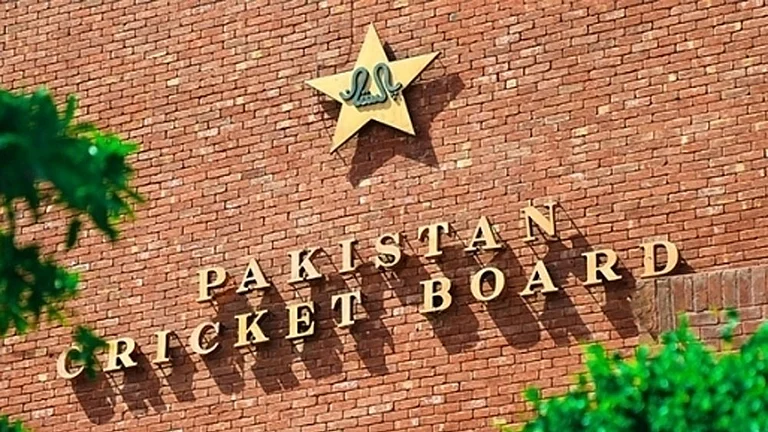Prime Minister Narendra Modi on Saturday launched the much-awaited 5G services in India at the 6th edition of India Mobile Congress (IMC) 2022 exhibition.
According to the release, 5G to be launched by the Prime Minister in select cities, will progressively cover the entire country over the next couple of years.
After inaugurating the exhibition at Pragati Maidan here, PM Modi went around pavilions set up by different telecom operators and technology providers to get a first-hand experience of what 5G can do.
He started with Reliance Jio's stalls, where he witnessed the 'True 5G' devices displayed and experienced the use case through Jio Glass.
Flanked by Telecom Minister Ashwini Vaishnaw and billionaires Mukesh Ambani of Reliance, Sunil Bharti Mittal of Bharti Airtel and Kumar Mangalam Birla of Vodafone Idea, he spent time understanding the indigenous development of end-to-end 5G technology.
He thereafter visited stalls of Airtel, Vodafone Idea, C-DOT and others.
The cumulative economic impact of 5G on India is estimated to reach USD 450 billion by 2035.
All about the 5G technology
Capable of supporting ultra-high-speed internet services, the fifth generation or 5G is expected to unleash new economic opportunities and societal benefits, serving as a transformational force for Indian society.
"Prime Minister, Narendra Modi will launch 5G services in India on October 1, 2022 and also inaugurate the 6th Edition of India Mobile Congress 2022 to be held from October 1-4, 2022, at Pragati Maidan, New Delhi," the release added.
It is pertinent to mention here that 5G offers speed multiple times faster than 4G, supports lag-free connectivity, and can enable billions of connected devices to share data in real-time.
Besides powering ultra-low latency connections, which allow downloading full-length high-quality video or movie to a mobile device in a matter of seconds (even in crowded areas), 5G can enable solutions such as e-health, connected vehicles, more-immersive augmented reality and metaverse experiences, life-saving use cases, and advanced mobile cloud gaming, among others.
How is it going to help India?
"5G can unleash new economic opportunities and societal benefits giving it the potential for being a transformational force for Indian society. It will help the country leapfrog the traditional barriers to development, spur innovations by startups and business enterprises as well as advance the 'Digital India' vision," the official release said.
The launch of 5G services in India, the world's second-biggest smartphone market after China, follows years of intense preparation.
India's biggest ever auction of telecom spectrum held recently had received a record Rs 1.5 lakh crore of bids, with Mukesh Ambani's Jio cornering nearly half of all the airwaves sold with a Rs 88,078 crore bid.
Telecom tycoon Sunil Bharti Mittal's Bharti Airtel made a successful bid of Rs 43,084 crore, while Vodafone Idea Ltd bought spectrum for Rs 18,799 crore.
Gautam Adani's group, whose entry in the auction was billed by some as another flashpoint in the rivalry with Ambani, paid Rs 212 crore for 400 MHz. Adani group bought spectrum in the 26 GHz band, which is suitable for setting up a private network for end-to-end communication.
The auction aggregated the demand for a robust 5G ecosystem that can cater to its use cases involving IoT (Internet of Things), M2M (Machine-to-Machine communication), AI (Artificial Intelligence), Edge Computing, and robotics.
The Telecom Department has amended Right of Way (RoW) Rules in August 2022, wherein the charges for permissions to lay cables and set up towers have been made reasonable and a ceiling for rates for installation of 5G small cells and optical fibre cable on street furniture has been fixed.
The Department of Telecom has set up a 5G testbed with help of IITs, IISc Bengaluru and SAMEER to develop technology in 2018.
A 5G hackathon was commenced in 2020, to trigger ideation and prototyping of use-cases by startups and has led to spurring innovative products, the official release said.
An inter-ministerial committee on 5G use-cases has been functioning since 2021, in coordination with 12 Central Ministries, enabling setting up of 5G use-case labs. Consultations with industry have been held enabling the 5G ecosystem to make handsets available.
C-DOT is also developing 5G Radio Access Network (RAN) in collaboration with local industry and start-ups. It has already tested 4G Core in collaboration with TCS and Tejas Networks successfully.
"All these will help in answering the Prime Minister's clarion call on 'Jai Anusandhan'. All these efforts are game-changers for India's manufacturing and Telecom ecosystem leading to domestic 5G enterprise carrier grade stacks as well as innovative impactful 5G use-cases," the release said.
The theme of India Mobile Congress this year is 'Encapsulate, Engage and Experience a New Digital Universe' and the blockbuster telecom event aims to promote new technologies, particularly the indigenous ones so people can experience the usages and applications of 5G.
The other objectives are promoting local manufacturing, fostering cooperation, inspiring inclusive and sustainable development, promoting entrepreneurship and innovation, driving foreign and local investments, among others.
The mega event is expected to attract over 5,000 CXOs and delegates, over 250 exhibitors, 100-plus Start-ups, more than 300 speakers, with an expected footfall of 70,000 participants and visitors.
A roundtable conference with State IT Ministers is also planned during the IMC 2022 for discussions on the role of States and union territories in the rollout of 5G, business opportunities, need for skill development and for interaction with potential start-ups and investors.
(With PTI Inputs)


























